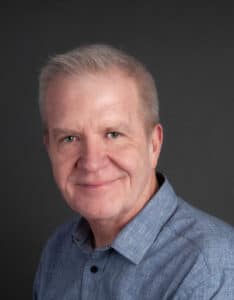
Buzz Knight
CEO/Founder, Buzz Knight Media
July 17, 2020

Buzz Knight
by Fred Deane
When your experience level in an industry achieves a certain level of success and longevity, it’s a natural instinct to begin to think about life as an entrepreneur. So is the case with Buzz Knight, whose career path has been a diverse one, with the one constant being upward mobility.
His ability to relate to programming is a natural instinct given his background as a day to day PD which includes WZLX/Boston, WNOR/Norfolk and WLVQ/Columbus. He also understands and subscribes to managerial collaborative leadership, insight gained from his programming executive roles at both Greater Media (SVP of Programming), and most recently at Beasley Media Group as EVP of Strategy & Innovation.
Earlier this year Buzz took the plunge into the deep end and formed Buzz Knight Media, now sharing his expertise on consulting, talent coaching and tactical guidance with clients across our industry.
 What are the core objectives of BKM, and how does your experience position you to offer unique perspectives that other like-kind firms may not?
What are the core objectives of BKM, and how does your experience position you to offer unique perspectives that other like-kind firms may not?
My core objective is to provide strategic guidance and insight to help brands achieve their ratings and revenue goals. Media brands are in the midst of rapid change within their landscape and while I fully acknowledge there are many strong consultants who I respect for their credibility and experience, I believe my approach has been battle tested in a unique manner that brings my client base knowledge to help bring them success.
I don’t subscribe to a one size fits all approach, but work toward enhancing strengths and creating new opportunities. I believe my approach is steeped in understanding the past and present conditions with an eye on building for the future.
I believe the other key areas I can help clients include: coaching (both from a talent perspective and an overall leadership perspective) and helping teams unlock monetization opportunities within their specific markets.
What is your assessment as to where our industry is today (within the entire multi-media landscape) and where should we be heading as a medium?
The industry was facing tremendous challenges prior to Covid-19 and now the challenges are even deeper.
Everything needs to be questioned so entities are running with high quality and with tremendous efficiency. Quality and high standards are key.
As a medium we need to do a better job of keeping our ear to the ground with what our customers and listeners are experiencing and feeling.
We can’t assume they all expect a business as usual approach.
This is a time that represents new opportunities to properly reset our approach to serving our customers and communities. It’s time to maximize all of our digital capabilities and think omni-channel distribution.
How important is it for the medium to reinvent/innovate going forward, especially given a recessed ad economy?
Innovation is critical at a time of deep challenges. It’s a necessity during times of disruption for industries to figure out new scenario planning models to be prepared for anything.
The leaders of today need to: Listen (to their teams and to their audience and customers), Inspire and Transform.
Recession times have historically spawned innovation and this is a time for leaders to move out of their comfort zone and make the magic happen!
Is the creative model on a local station level even plausible these days given the staff reduction in these creative areas?
It honestly depends on the market size, competitive dynamic and a company’s desire to compete with all forms of media. If we take a beginner’s mindset approach at how all staff is deployed, we can incrementally make changes in the creative model. It’s time for managers to bring their teams together and properly build for the future.
What are some potential pitfalls that stations, if not radio groups in general, should be aware of going forward?
One pitfall is not having a keen enough understanding of the importance of finding who your future customers/listeners are. Another pitfall would be an overabundance of resource cutting that would yield a non-competitive product in all aspects of content.
What daypart has frequently experienced the most resource slashing? Mid-days. Seems potentially counterintuitive considering the consumption and usage shifting more toward that daypart given increased work at home behavior.
Additionally, radio brands have to confront the biggest elephant in the room: commercial loads. Both commercial quality and commercial loads need to be a priority for discussion while being respectful of financial goals and aspirations.
Complacency is certainly a pitfall as well which can’t be tolerated.
How can radio best optimize the abundance of data and research at its disposal regarding audience and music trends, while avoiding overreliance?
By continuing to mine existing available data along with being fearless about experimenting with new forms of data. Following trends while being informed by data is critical in a fast-changing world. The gut can’t be eliminated as a factor for sound decision making, but we need data to inform our decisions.
Are programmers being asked to do too much across programming responsibilities?
Absolutely this is a problem. Programmers only have so much available bandwidth. When they are asked to take on dozens of new initiatives and they don’t have a team to help execute, that is a problem.
What are your thoughts on national contesting, especially as every radio group is involved these days and it sounds very unoriginal station to station?
National contesting still works but the entire ecosystem is being filled with a “white noise” result from embarking on the identical playbook every time. New imagination is critical so a station can sound unique in its marketplace.
What are the biggest challenges the industry faces going forward and how can you help overcome them?
The biggest challenge is time spent by companies these days attacking their significant issues. Everyone is more in a day-by-day mode rather than long range. Leadership in the media business needs to be more transformative than ever in the new normal. The challenge exists to make teams more connected in a technological world that is less connected in person than ever. I can help companies meet these challenges head on!
Can staff reductions in general lead to avenues of ops for outside media consultants?
Opportunities can come from disruptive times. As companies work at meeting the challenges, I believe they should consider a true novice’s mindset when it comes to their internal work flow, long term scenario planning and maximizing performance. Many of us who maintain the outside looking in view can help companies with their process.
You have worked with several radio professionals during your career. What leadership qualities have you adopted along the way?
I am so incredibly grateful for having the opportunity to learn from so many great leaders during my career. The list is endless of folks I either worked for or worked alongside of as part of a team who represented so many great leadership qualities. Remarkable work day in and day out.
Being part of a team is something I have always dearly loved and nobody was better in bringing out the most in his team than coach John Wooden. His words on character have always resonated, “Be more concerned with your character than your reputation.”
I can thank my late mom for always leading by the same type of example during her entire life.
If I reach back to my time at the University of Dayton, my first Program Director Geoff Vargo and our “radio professor” Rick Illfeld made big impressions. They both taught a passion and respect for the business that has helped me to this day.
Additionally, when I think more in the present, Bob McCurdy is a great leadership inspiration when it comes to his tremendous industry advocacy, his love and passion for his craft and his resilience during challenging times.

